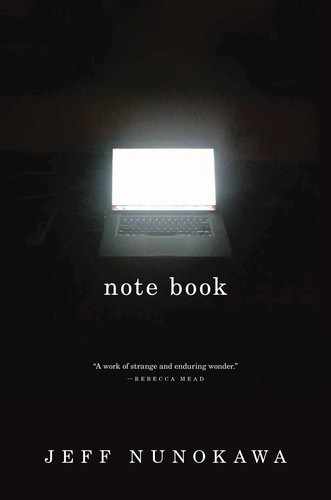1646. “I know where the wild things are—but I’m not telling”
Jeff Nunokawa
Sometimes the best directions are the ones not given.
1659. “bouquet of attention”
Norman Mailer, The Grammar of Sympathy
Norman Mailer on Hubert Humphrey’s acceptance speech for the nomination of the Democratic Party, Chicago, 1968:
Tonight … he was not hollow but full. He had a large audience, and his actor’s gifts for believing a role. Tonight he was the bachelor uncle who would take over a family (left him by Great-Uncle Baines) and through kindness, simple courtesy, funds of true emotional compassion, and stimulating sternness upon occasion of the sort only a bachelor uncle could comprehend … he would bring back that old-fashioned harmony to his ravaged [family].
Trust me: if you were of the political persuasion and cultural temperament of a man like Norman Mailer, it must have required almost unfathomable intellectual ingenuity to appreciate Hubert Humphrey in August 1968. I mean, not merely to “lesser evil” tolerate him (although in those desperate heated days and nights after the Assassinations and in the midst of a hopeless war with which Humphrey was utterly associated, even the spirit of minimal abiding was in short supply); but to actually suspend your Hostility toward the Middle-Brow, Middle-of-the-Road, Midwesterner, Vice President of a discredited Administration—well for a fancy leftist artist like Mailer, we’re talking a minor miracle.
Accomplishing such a moment of grace, Mailer has one advantage. Even when his subject is one he despises, he is seldom merely snide: when he ventriloquizes a way of seeing and being foreign or even disgusting to his own, he is never satisfied merely to sneer; no: he really wants to see this other being and feeling; and he really wants, by the best lights of free-indirect discourse, to tell the inside story of this seeing and being. This impulse takes flower sometimes, it seems, in spite of the grounds of the character where it is rooted: sometimes Mailer will gain the higher mount, the grace of sympathy, by talking himself into it: what begins in the dark soil of thickest satire blooms, as the words flow, into something fuller, something sweeter, something kinder. If you start giving voice to some quite other consciousness with something other than a single-minded impulse to be snotty about it—well, God only knows where you’ll end up. Like here: in the midst of the bachelor uncle cartoon, “funds of true emotional compassion” suddenly report themselves for duty—the “true” compassion of Hubert Humphrey, and then, behind that, the “true” compassion of the man behind the camera; the “true” compassion of the man who records it.
The compassion of a writer who bestirs himself to find in a morally exhausted and universally ridiculed ruin of a man the aspirations that first set him forth, to find them and speak them out loud; the compassion that discerns and describes in the lineaments of a Lucifer-Ruin lines leading back to a once stouthearted warrior for whom Civil Rights was “simple courtesy”; the compassion that reads through the bundle of embarrassing gestures at the podium the now disembodied consciousness of the man Muriel married; the man Muriel loved.
I sometimes wonder what happens when you and I practice to understand perfectly, I mean perfectly, the whole of the wounded consciousness of the ethically defeated and unlovely. I sometimes wonder what we might heal by such essays at being considerate.
Notes:
1. “My friends, to those who say that we are rushing this issue of civil rights, I say to them we are 172 years late. To those who say that this civil-rights program is an infringement on states’ rights, I say this: The time has arrived in America for the Democratic Party to get out of the shadow of states’ rights and to walk forthrightly into the bright sunshine of human rights. People—human beings—this is the issue of the 20th century. People of all kinds—all sorts of people—and these people are looking to America for leadership, and they’re looking to America for precept and example” (Hubert Humphrey, speech to the Democratic Convention, Philadelphia, 1948—a very different night than that night in 1968. The twenty years in Washington had become this night property to harvest [Mailer, “The Siege of Chicago”]).
2. “sometimes, it seems, in spite of the grounds of the character where it is rooted: sometimes it seems as if Mailer gains the grace of sympathy by talking himself into it: what begins in the dark soil of thickest satire becomes, as the words flow into something else, something sweeter, kinder”: think about the phrase “funds of true emotional compassion”—you can smell the corpse of the merely satiric, but then the word “true” intervenes, and the living body of true charity all at once announces its presence.
3. On the potentialities of the rhetoric of empathy, see G. Eliot and her critics.
4. See G. Eliot on the pen as a “thinking organ.”
1663. “I am finally seeing, I was the one worth leaving”
Postal Service, “The District Sleeps Alone Tonight”
The Classic Romantic Contest always has a Loser—rules of the game. Two men compete for the same woman, or the other way around, or some other, other way around.
I wonder how often and how, exactly, those who lose at this game feel the outcome as the right one? And how often is that feeling of un-sore losing merely a coping with a fate that will not be evaded in any case? And thus, finally, how often is it the summit sense that the better man has won the ring, and the better man is not you?
